
Industries in Mexico
Industries in Mexico benefit from its strategic location, skilled workforce, and favorable business environment.
Industries Thriving in Mexico
Mexico has emerged as a global manufacturing powerhouse, attracting businesses from around the world due to its strategic location, skilled labor force, and favorable trade agreements. The country's diverse industrial landscape offers significant opportunities across various sectors. Here’s a detailed look at some of the leading industries driving Mexico's economic growth.
Proximity to the United States: A Strategic Advantage
Mexico's close proximity to the United States plays a crucial role in this growth story. This geographical advantage allows for reduced transportation costs and quicker turnaround times compared to distant manufacturing hubs like China. As wage and transportation costs rise in China, Mexico becomes an even more attractive option for companies looking to optimize their supply chains.
A Diversified Labor Pool
Additionally, Mexico boasts a large, diversified labor pool that is well-suited for a wide range of manufacturing activities. This skilled workforce, combined with lower labor costs, positions Mexico as a competitive alternative for manufacturers worldwide.
Economic Expansion and Trade Opportunities
With strategic trade agreements in place, such as the United States-Mexico-Canada Agreement (USMCA), companies find Mexico appealing for its access to the North American market. This, coupled with its robust manufacturing infrastructure, ensures stable economic expansion and fosters growth across various industries.
Impact of the USMCA on Mexican Manufacturing
The United States-Mexico-Canada Agreement (USMCA) has significantly influenced manufacturing dynamics in Mexico. Among automotive executives, there is a strong consensus (78%) that the agreement will benefit their companies long-term, with more than half predicting an overall boost in North American vehicle production.
New Requirements Driving Change
A critical component of the USMCA is the stipulation that 75% of a vehicle's components must be sourced from North America. This has ushered in substantial repercussions for the Mexican manufacturing sector. By mandating that core auto parts originate from Mexico, Canada, or the United States, the agreement has actively encouraged more business for Mexican suppliers, fostering growth and diversification.
Expansion of Opportunities
The alignment of auto part production within these countries under the USMCA framework aims to boost business opportunities. For Mexican manufacturers, this spells potential growth, as they now play a crucial role in supplying essential components to their northern neighbors. Additionally, the focus on regional sourcing is set to reinforce Mexico's position in the supply chain, potentially leading to job creation and economic advancement.
Overall, the USMCA is reshaping Mexican manufacturing, positioning it as an integral player in North America's automotive ecosystem.
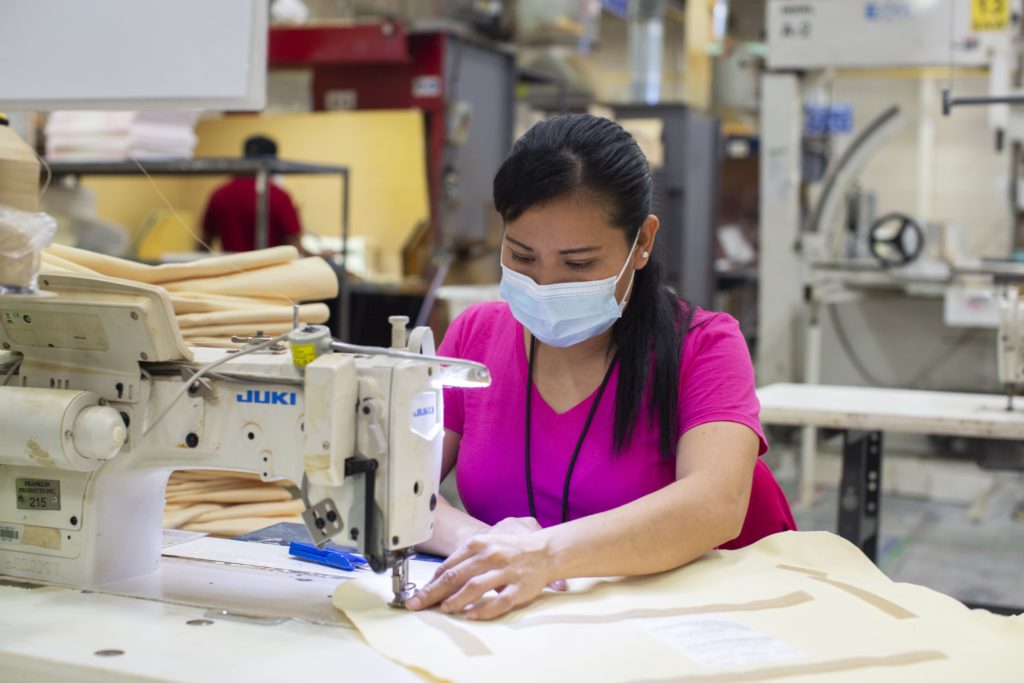
NovaLink Manufacturing Facility Video
NovaLink has released a new video highlighting the versatility of their manufacturing facility in Matamoros, Mexico. In this video, you will be able to see the factory and its associates in action. The video, which was filmed on the floor of the manufacturing facility, illustrates the variety of manufacturing operations and the wide range of skills represented by the workforce. As well as demonstrating NovaLink's commitment to first class manufacturing, the video also emphasizes its commitment to safety protocols for the health of its workers and clients.
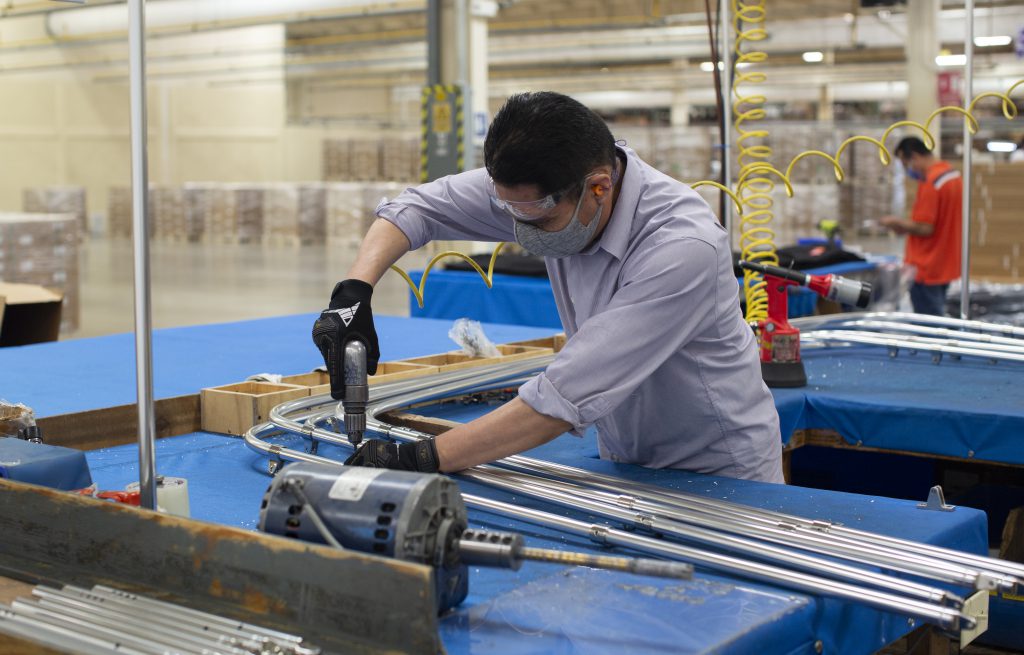
Automotive
Discover the ins and outs of auto manufacturing in Mexico, from its history to its current state and future prospects. Learn why Mexico is a hub for automotive production and investment
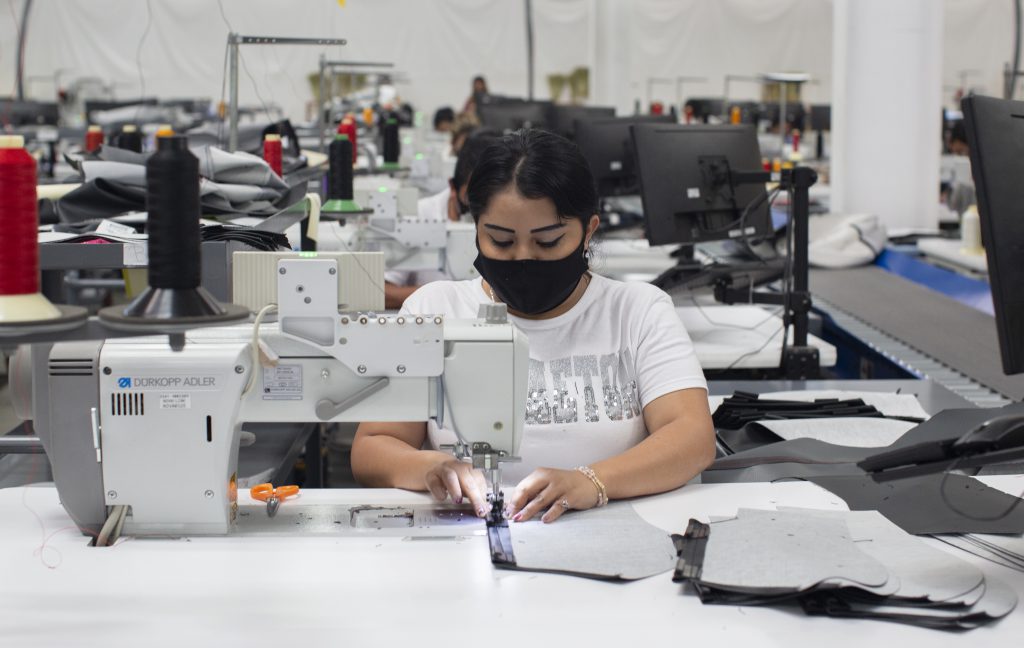
Textiles
Because of its strategic location and skilled labor force, Mexico's textile industry has grown steadily. In response, more and more companies are outsourcing production to nearshore factories.
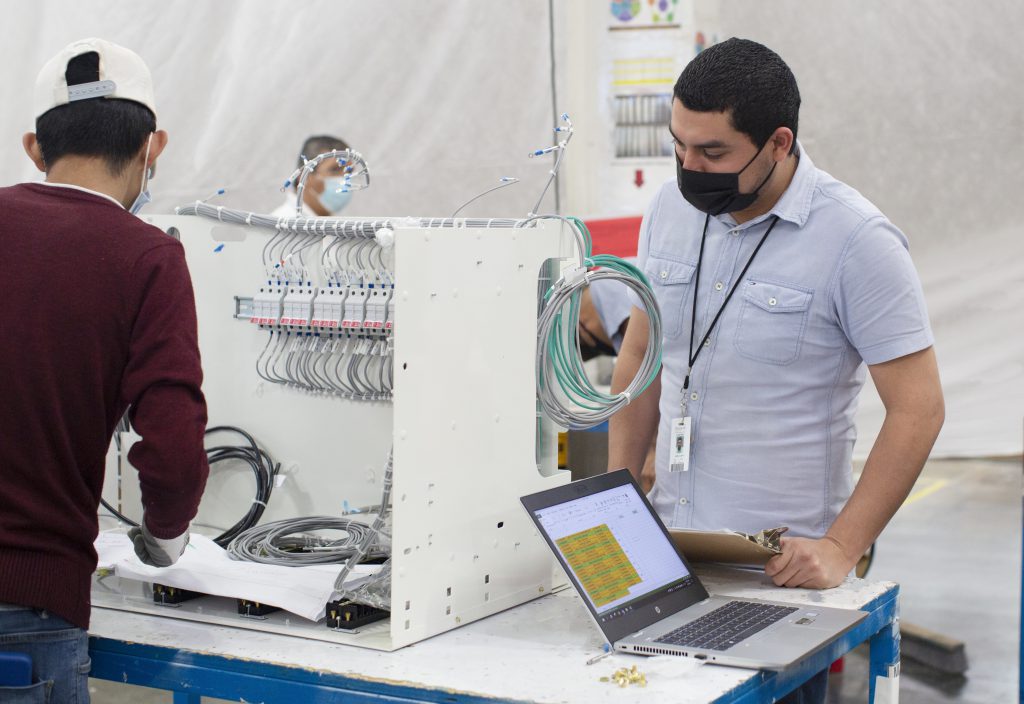
Electronics
The Mexico manufacturing advantage is ideal for Manufacturing electronics, which is why many companies manufacturing electronics are choosing to move manufacturing out of China in favor of Mexico.
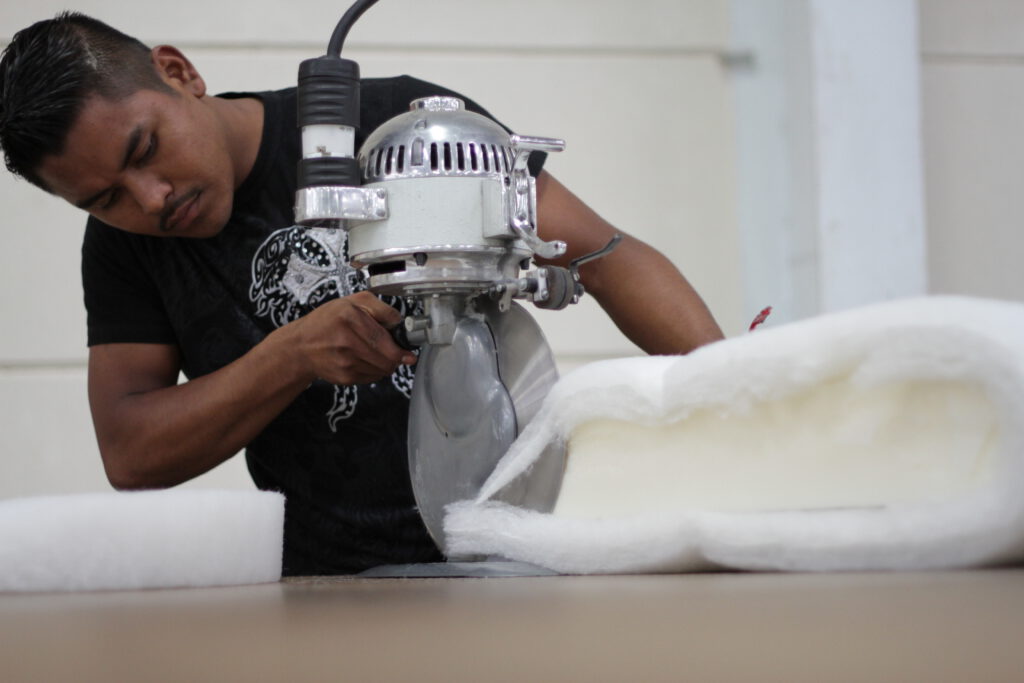
Furniture
The furniture manufacturing industry in Mexico has experienced significant growth in recent years, becoming an integral part of the country's economy.
As a result of a long history of craftsmanship and its strategic location, Mexico has become a sought-after destination for furniture manufacturers.
IMMEX Program
Manufacturing companies who utilize the IMMEX program enjoy operations savings that companies utilizing manufacturing options in other countries like China, do not. The IMMEX program allows companies providing Mexico shelter manufacturing services to lower manufacturing costs by sending materials and equipment, utilizing a temporary duty-free basis to Mexico, having the materials manufactured or assembled, then re-sent back to the U.S. for sale or distribution. In addition, the IMMEX program also allows the manufacturer in the U.S. to take advantage of a large, skilled, & affordable labor pool for their operations.
Our Facilities
NovaLink clients can reduce overhead costs by only paying for occupied space, labor, and shipping G&A, thanks to our unique model. Brownsville‘s distribution center has a full warehouse for clients. On a daily basis, this location moves $2 million in product to 200 locations across the U.S. and the world.
Brownsville Distribution Facility
Matamoros Facility
NovaLink’s Matamoros facility located at Ave. Prolongación Calle Industrial #196 A Parque Industrial del Norte Matamoros, Tamaulipas 87316 Mexico, features 2 buildings of manufacturing space in addition to the NovaLink Headquarters. Novalink’s Mexico shelter manufacturing services are done primarily at these locations.
- Nova A: 203,172 sq. ft of manufacturing space
- Nova B: 201,739 sq. ft of manufacturing space.
Saltillo Facility
NovaLInk operates a 78,000 square foot manufacturing facility in Saltillo, Mexico.
Is it Cheaper to Manufacture in Mexico?
While manufacturing in China may provide some immediate cost advantages, it is generally more cost-effective to operate manufacturing operations in Mexico over the long term.
- Manufacturing Labor is Less Expensive and More Plentiful than China
- There is an abundance of warehousing and manufacturing space on the border of the US & Mexico (particularly in Texas) that is significantly more inexpensive than in China.
- In light of the current supply chain problems using sea freight, the speed of the arrival of goods from Mexico to the US is perhaps the greatest advantage offered by manufacturing in Mexico. In comparison to China, it takes a fraction of the time for your products to reach American warehouses and stores.
- US buyers, citing poor quality and delays from China, are buying more goods and supplies from factories located in Mexico.
- Due to the US Free Trade Agreement with Mexico, it is relatively inexpensive and almost seamless to move goods across the border. Currently, Chinese goods entering the US are subject to high tariffs, which makes the process of transporting them into American markets very expensive.
- In Mexico, energy costs are comparable to those in the United States, making them both cheaper and more environmentally friendly. There is a high dependence on coal in China, and there is a gas shortage, making energy costs high and causing frequent power outages.
- The exchange rate for the Peso compared to the US dollar is very favorable, allowing investments in Mexico to go further than investments in China.
- The intangibles of manufacturing in Mexico; easy setup model, protection against intellectual property theft and limited legal liabilities are benefits that are not offered when manufacturing in China.
Why Outsourcing Manufacturing to Mexico Makes Sense
Modern businesses are constantly seeking ways to optimize their operations and gain a competitive edge. Mexico is one of the countries that have gained considerable traction in recent years when it comes to outsourcing manufacturing. As a result of its strategic location, skilled labor force, cost advantages, and favorable trade agreements, Mexico offers numerous advantages to companies looking to streamline their production processes.
Frequently Asked Questions on Industries in Mexico
How Does the USMCA Shapes North American Vehicle Manufacturing?
The United States-Mexico-Canada Agreement (USMCA) is playing a transformative role in the automotive sector across North America. A key element of this agreement is the stipulation that at least 75% of a vehicle's components must be manufactured within North America. This requirement is designed to bolster domestic production and tighten the supply chain across the region.
Positive Impact on Companies
According to surveys, the majority of automotive executives anticipate significant long-term benefits due to the USMCA. Specifically, 78% of these leaders believe that these regulations will favorably influence their businesses over time. This optimism is based on the potential for increased collaboration and integration within North American manufacturing.
Boost for Local Manufacturing
The USMCA aims to rejuvenate vehicle production in the region. More than half of the executives surveyed expect a boost in North American manufacturing overall, which suggests a growing demand for locally sourced materials and labor. By ensuring core auto parts originate from Mexico, Canada, or the United States, the USMCA encourages innovation and sustainability within the industry.
Opportunities for Exporters and Suppliers
These manufacturing requirements are not just about compliance. They hold the promise of creating new business opportunities. In the U.S., exporters stand to gain from the increased demand for North American-made components. Similarly, suppliers in Mexico could see a rise in business as they provide essential parts to meet these standards.
In conclusion, the USMCA is reshaping the landscape of the automotive industry across North America, fostering regional cooperation while setting the stage for future growth and competitiveness in the global market.
How Significant is the Automotive Manufacturing Industry in Mexico's Economy?
Mexico's automotive manufacturing sector stands as a cornerstone of its economic landscape. This booming industry is not just a regional powerhouse; it holds the title of the largest automotive producer in South America. Each year, nearly 4 million vehicles roll off assembly lines in Mexico, with an impressive 82% destined for export markets.
Contribution to GDP
The automotive sector contributes a whopping 20.2% to Mexico's GDP, highlighting its integral role in the nation's financial framework. This is second only to the food industry, which accounts for 20.7%. These figures underscore the automotive industry's stature as a critical driver of economic activity.
Economic Growth
Industry leaders have noted a significant upward trend. The sector's robust expansion over the past decade can't be overstated, with economic impact stretching into various other areas of business and infrastructure.
Future Projections
The financial prospects are equally promising, with projections indicating that the industry's net revenue will break through the $100 billion barrier. Such income generation positions the automotive industry as a pivotal contributor to Mexico's sustained economic development.
In conclusion, the automotive manufacturing industry is not just significant; it's a vital engine fueling Mexico's economy, driving growth, and providing a substantial export base.
What Are The Key Statistics on Mexico's Automotive Manufacturing Industry?
The automotive sector in Mexico is a powerhouse in the nation's economy and plays a significant role on a global scale. Here's a breakdown of essential statistics that highlight its impact:
- Global Production Rank: Mexico stands as the sixth-largest producer of passenger vehicles worldwide, with an annual output of nearly 5 million vehicles. This figure continues to rise, cementing the country's role as a dominant player in the industry.
- Export Dominance: Approximately 82% of vehicles manufactured in Mexico are exported, showcasing the country's importance in global trading networks.
- Economic Impact: The automotive manufacturing sector contributes a substantial 20.2% to Mexico's Gross Domestic Product (GDP), only slightly behind the food industry at 20.7%.
- Employment: This industry supports over one million jobs within Mexico, highlighting its role as a crucial employment generator.
- Revenue Projections: The sector is on track to achieve net revenues exceeding $100 billion, underscoring its financial significance.
- USMCA Influence: The United States-Mexico-Canada Agreement (USMCA) introduced several key regulations. Notably, 75% of a vehicle's content must originate from North America, with core parts sourced specifically from Mexico, Canada, or the United States. This is anticipated to bolster North American vehicle manufacturing and provide substantial benefits to workers and consumers alike.
These statistics emphasize Mexico's critical role in the automotive sector, driving economic growth and fostering international trade and cooperation.
What Is The Role of Mexico's Labor Force in Manufacturing Expansion?
Mexico's labor force is a pivotal factor in the booming expansion of its manufacturing sector. One of the most compelling reasons for this growth is the reduced labor cost. Companies are drawn to Mexico because the expenses associated with employing skilled workers are significantly lower compared to other regions.
This isn't just about cost savings, though. Mexico boasts a vast and varied pool of labor. The workforce isn't just growing in numbers; it’s also advancing in expertise and versatility across a wide array of manufacturing domains. This skilled and educated labor force has become a backbone for industries such as automotive, electronics, and aerospace.
Proximity to the United States adds another layer of strategic advantage, making Mexico an attractive option for manufacturers looking to optimize their supply chain. With rising labor and transportation costs in countries like China, Mexico's location provides a logistical edge that companies are eager to capitalize on.
In essence, Mexico's labor force is not just contributing to the expansion—it’s a driving force, shaping the future of manufacturing industries with its unique blend of affordability, expertise, and geographical advantage.
What Roles Does The Mexican Government Play in Supporting Manufacturing Industries?
The Mexican government plays a pivotal role in bolstering the manufacturing sector by simplifying regulatory processes, making it easier for businesses to set up operations. They have enacted policies that streamline business establishment, reducing bureaucratic hurdles and facilitating a smoother entry for manufacturing companies.
Moreover, Mexico benefits from advantageous trade frameworks, such as the United States-Mexico-Canada Agreement (USMCA). These agreements help maintain competitive production costs and ensure the efficient movement of goods across borders. By minimizing tariffs, the government enhances accessibility to international markets, thus fostering a robust environment for manufacturing industries.
How Have Textile Manufacturers in Mexico Modernized Their Operations?
Textile manufacturers in Mexico have been making significant strides in modernizing their operations. This evolution is part of the industry's larger goal to boost productivity and diversify their product offerings.
Advanced Facility Upgrades
To keep up with global competition, these manufacturers have invested in cutting-edge technologies. Modernization efforts include upgrading machinery and adopting automated processes. This not only increases efficiency but also enhances the quality of the products.
Diversification into New Sectors
Beyond traditional textiles, there is a move towards expanding into more specialized areas such as automotive and industrial fabrics. This diversification is a strategic shift meant to tap into new markets and reduce dependency on conventional apparel production.
These advancements underscore the industry's commitment to maintaining a competitive edge in the global market, contributing significantly to Mexico's manufacturing GDP.
What Opportunities Does The Consumer Products Manufacturing Industry in Mexico Offer?
The landscape of consumer products manufacturing in Mexico is evolving rapidly, offering a range of exciting opportunities for global companies. One of the primary drivers of this transformation is the shift in manufacturing operations to Mexico, as companies seek cost-effective alternatives to rising expenses in other countries, particularly China. This is not just limited to traditional goods but extends significantly to electronics manufacturing as well.
Cost-Efficiency and Strategic Advantages
Manufacturers are increasingly attracted to Mexico due to its cost-efficient infrastructure. The country facilitates these operations through initiatives such as the IMMEX Program. This program enables the duty-free importation of raw materials, bolstering the value proposition for manufacturers establishing operations in Mexico.
Growth in Electronics and Engineering Expertise
Mexico's electronics manufacturing sector is burgeoning, supported by a growing workforce of engineers and design specialists. This talent pool is a considerable asset for consumer goods companies aiming to innovate and develop technologically advanced products.
Diverse Industry Presence
Today's manufacturing ecosystem in Mexico is varied and sophisticated. Unlike the past, which saw Mexico primarily focused on basic assembly tasks, the country now hosts a broad spectrum of industries. Notably, Tijuana has become a hub for medical device manufacturing, boasting the highest concentration of such facilities in North America. Additionally, Mexico ranks as the fourth largest automobile producer globally, reflecting its capability in high-tech manufacturing.
These developments indicate a vibrant and expanding manufacturing sector, making Mexico an attractive destination for consumer products companies looking to enhance operational efficiencies and innovate with new technologies. The diverse industry landscape and supportive programs like IMMEX further underscore the potential for global businesses to thrive in this dynamic environment.
Why Are Consumer Product Companies Shifting Manufacturing to Mexico?
In recent years, a noticeable trend has emerged where numerous consumer product companies are transferring their manufacturing operations to Mexico. Several key factors make this move advantageous.
Cost Efficiency
One of the primary incentives is the rising manufacturing costs in countries like China. Mexico offers a more cost-effective alternative, making it an attractive destination for companies aiming to optimize expenses. Not just limited to traditional consumer goods, even electronics manufacturers are finding Mexico to be a financially viable option.
Strategic Benefits
Many companies benefit from establishing shelter corporations in Mexico. These corporations allow companies to leverage the IMMEX Program (previously the Maquiladora Program). This program permits duty-free importation of raw materials, thereby reducing the burden of import taxes and offering significant cost savings.
Skilled Workforce
The increase in available engineers and design specialists in Mexico contributes to its growing appeal for electronic manufacturing. This skilled workforce not only meets the demands of current production but also supports innovation in product design and development.
Market Accessibility
The proximity of Mexico to the United States offers logistical advantages. With the U.S. consumer goods market being the largest worldwide—valued at $446 billion in 2015 according to the U.S. Bureau of Labor Statistics—manufacturers in Mexico can easily access this massive market. This geographical closeness reduces shipping times and costs, allowing companies to respond quickly to market demands.
In summary, a blend of cost reduction, strategic initiatives, a highly skilled workforce, and market proximity collectively drive the shift of consumer product manufacturing to Mexico. This trend marks a strategic evolution in global manufacturing logistics.
What Is The Contribution of the Apparel and Textile Industry to Mexico's GDP?
The apparel and textile sector plays a vital role in bolstering Mexico's manufacturing economy, positioning itself as the fourth-largest contributor within this sector. Together, textile and clothing production represents a notable 3.7% of the nation's manufacturing GDP.
- Textiles: This segment alone contributes 1.3%, providing essential materials and exports to both domestic industries and global markets.
- Apparel: Accounting for a more significant portion at 2.4%, this segment drives the export economy, influencing fashion and retail sectors worldwide.
By integrating skilled labor, advanced manufacturing technologies, and strategic trade relationships, the apparel and textile industry is a key component of Mexico's economic landscape.
Are You Ready to Begin Manufacturing in Mexico? Contact Us for a Free Consultation
Contact us and let's start building something!
Use the details to the right to contact NovaLink.
Office
6665 Padre Island Highway
Suite B
Brownsville, Texas 78521
Hours
Mon-Fri: 8am - 5pm